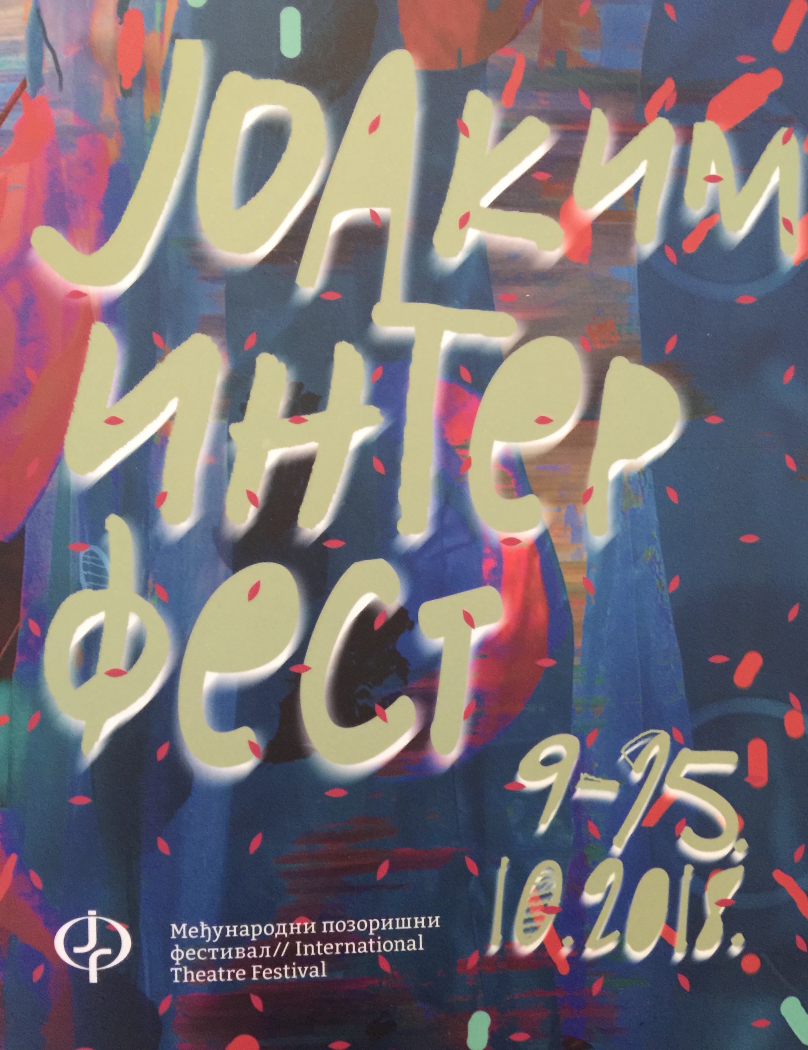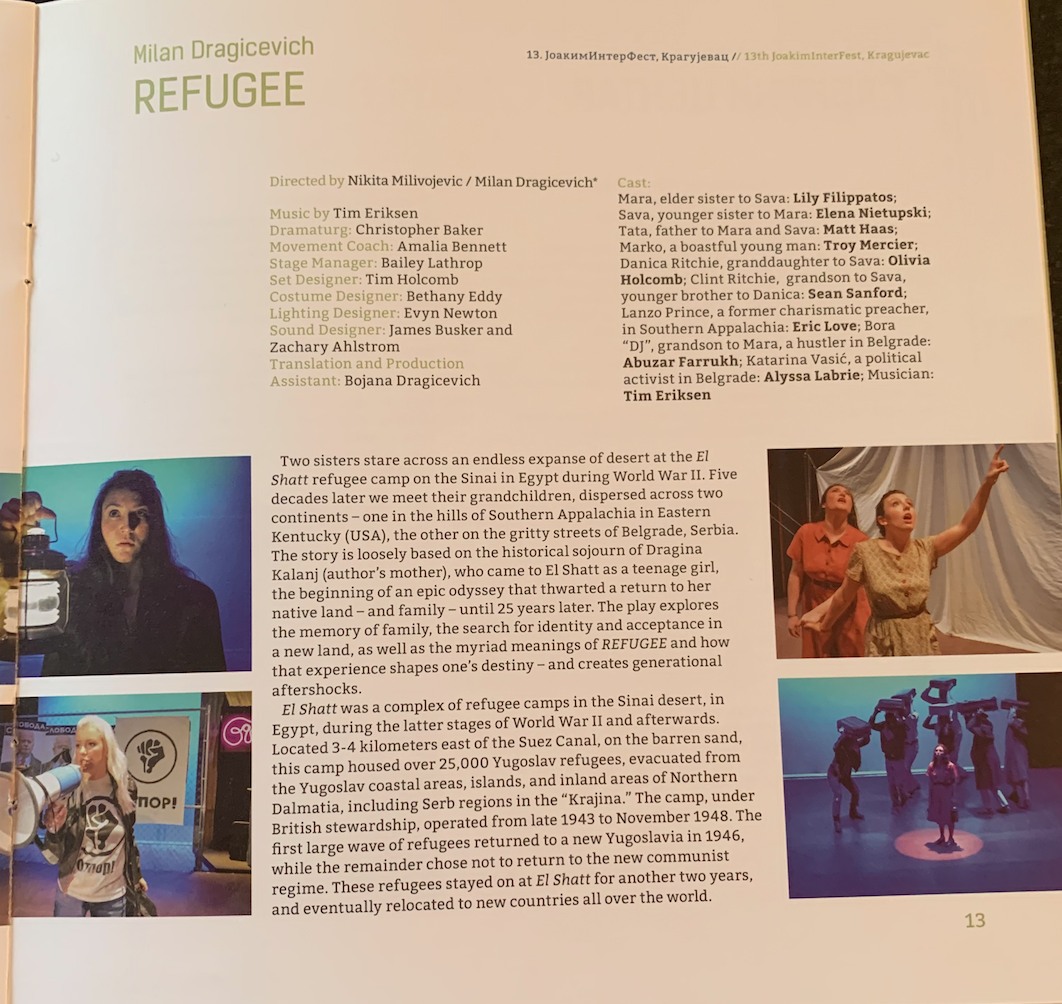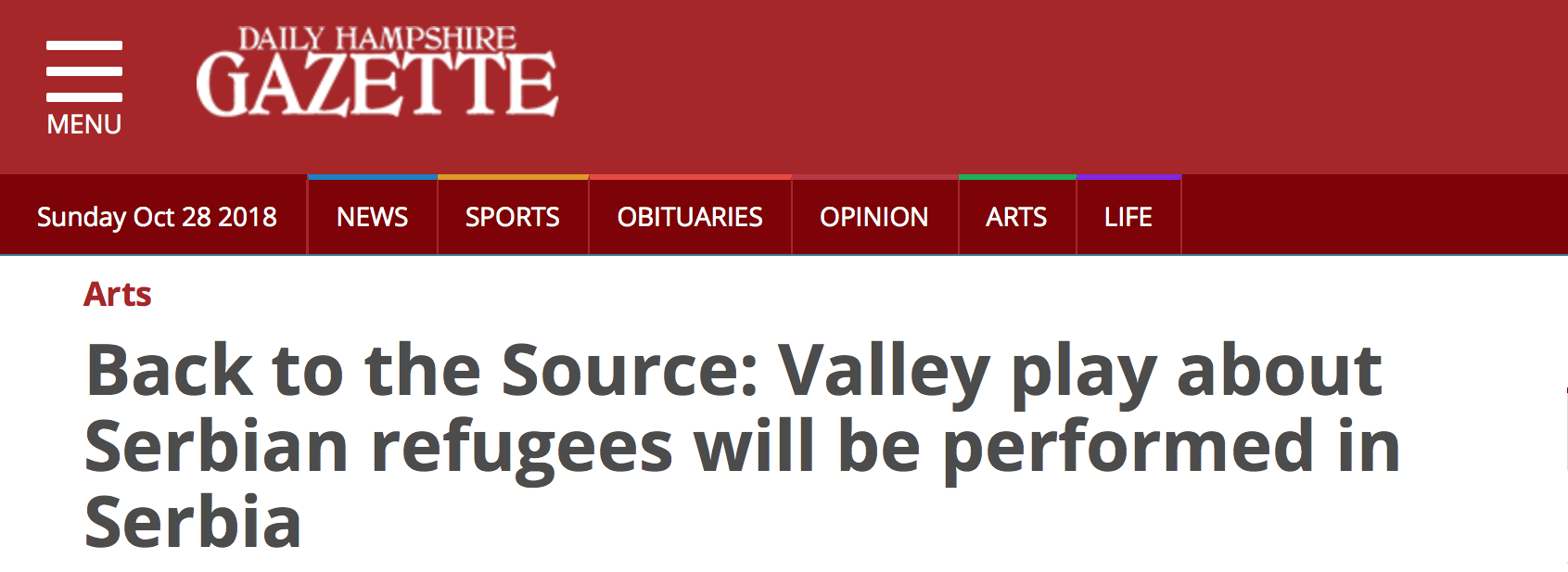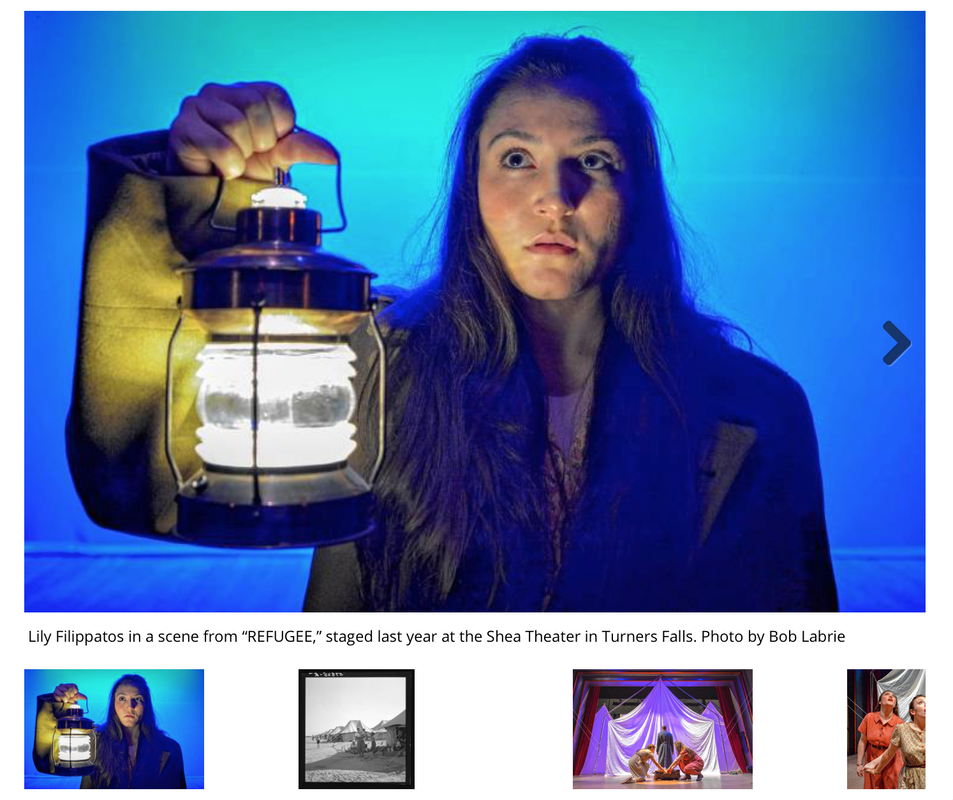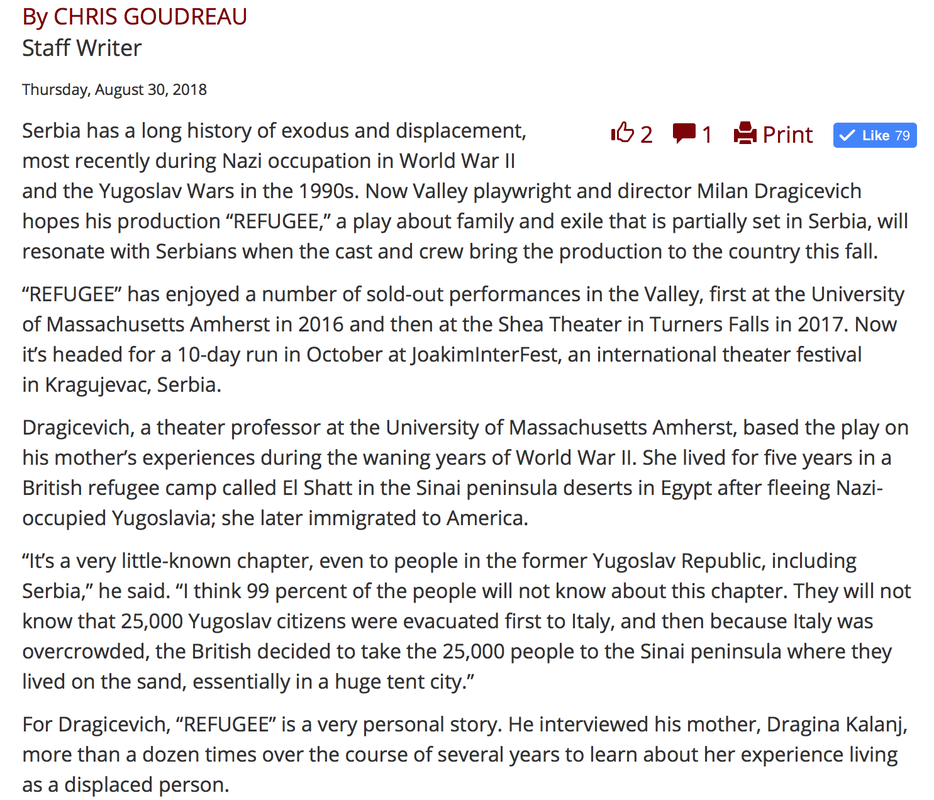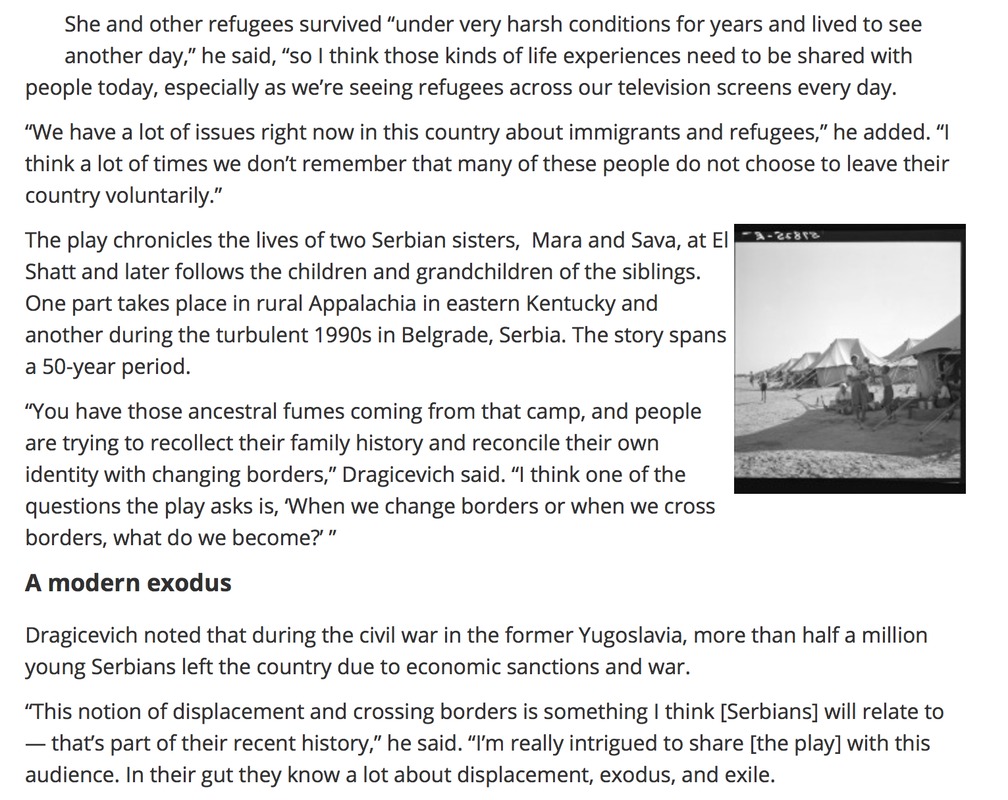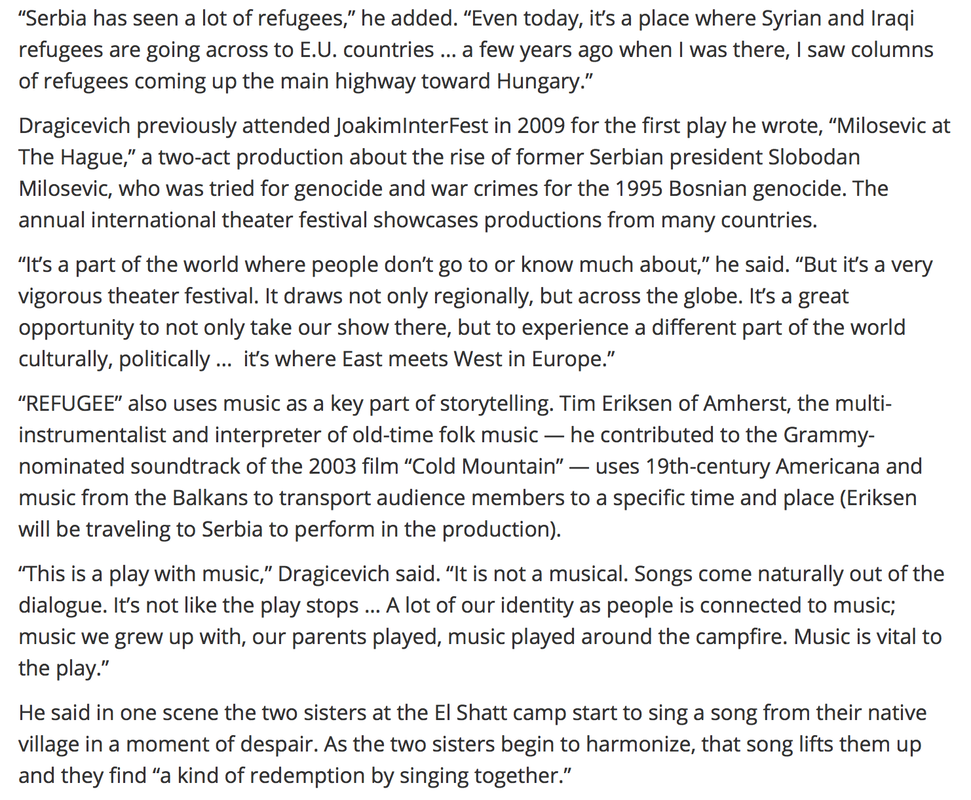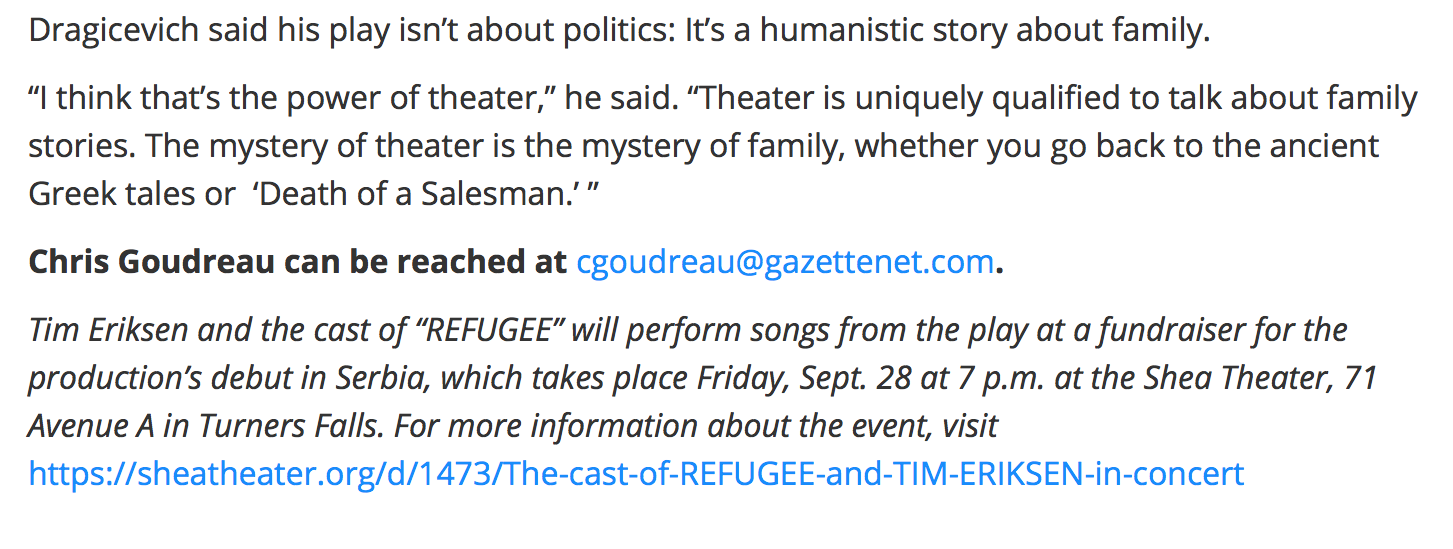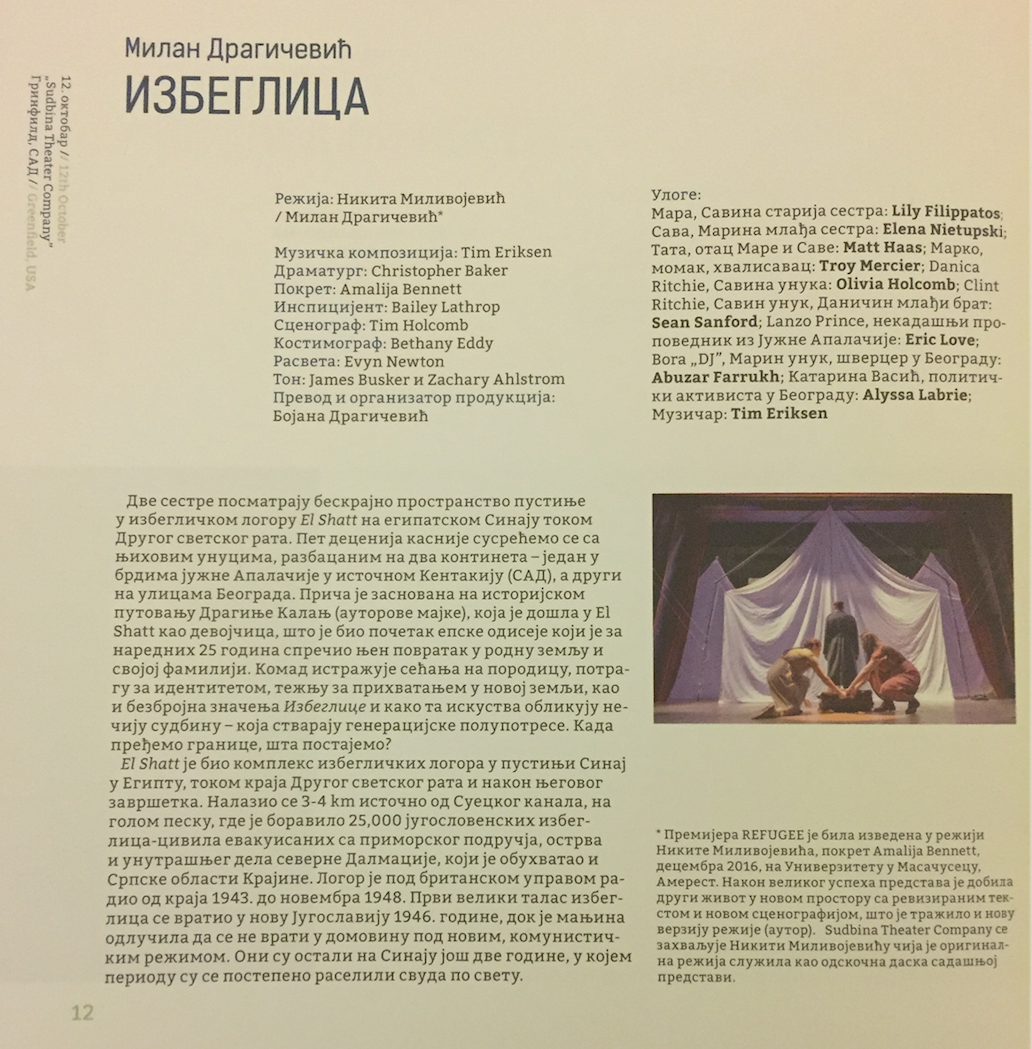REFUGEE in Serbia
|
Written by: Milan Dragicevich
Dir. by: Milan Dragicevich/Nikita Milivojevic Music by: Tim Eriksen Produced by Sudbina Theater Company "Joakim Interfest," Kragujevac, Serbia October 9-15, 2018 Following successful runs at UMass Fine Arts and the Shea Theater Arts Center, the REFUGEE production was invited to participate at the "Joakim Interfest" international theater festival in Kragujevac, Serbia. This now-independent production organized itself as The Sudbina ("Destiny") Theater Company and began organizational efforts to realize our dream of performing overseas. After a dedicated ensemble effort, Sudbina's production of REFUGEE premiered at the festival on October 12, 2018, earning a standing ovation from its audience. Sudbina Company joined leading troupes from Russia, Bosnia, Slovenia, Croatia, and Serbia. |
WRSI "The River" interview with Milan Dragicevich & Tim Eriksen: REFUGEE Goes to Serbian International Theater Festival (2018)
REFUGEE production program at Joakim Interfest, October 2018
Photos by Dragan Vuckovic/Joakim Interfest & Sean Sanford
